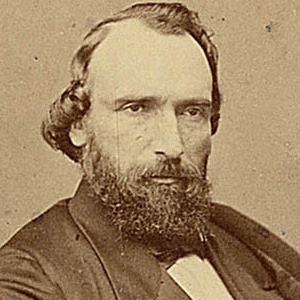
Henri Amiel (1821 – 1881) was a Swiss philosopher and poet. Born in Geneva, in 1849 he was appointed professor of aesthetics at the academy of Geneva, and in 1854 became professor of moral philosophy. The one book by which Amiel is still known, the Journal Intime (“Private Journal”), was published after his death and obtained a European reputation. Although modest in volume of output, Amiel’s Journal gained a sympathy that the author did not obtain in his life.

Quotes by Henri Amiel…
Everything which compromises the future or destroys my inner liberty, which enslaves me to things or obliges me to be other than I could and ought to be… hurts me.
Whenever conscience speaks with a divided, uncertain, and disputed voice, it is not yet the voice of God. Descend still deeper into yourself, until you hear nothing but a clear and undivided voice, a voice which does away with doubt and brings with it persuasion, light and serenity. Happy, says the Apostle, are they who are at peace with themselves, and whose heart condemns them not in the the part they take.
Be neither the slave of your impulses and sensations of the moment, nor of an abstract and general plan; be open to what life brings from within and without, and welcome the unforeseen, and give to your life unity, and bring the unforeseen within the lines of your plan. Let what is natural in you raise itself to the level of the spiritual, and let the spiritual become once more natural. Thus will your development be harmonious.
To be happy, to possess eternal life, to be in God, to be saved — all these are the same. All alike mean the solution of the problem, the aim of existence. And happiness is cumulative, as misery may be. An eternal growth is an unchangeable peace, an ever more profounder depth of understanding, a possession constantly more intense and more spiritual with the joy of heaven — this is happiness. Happiness has no limits.
What comfort, what strength, what economy there is in order — material order, intellectual order, moral order. To know where one is going and what one wishes — this is order; to keep one’s word and one’s engagements — again order; to have everything ready under one’s hand to be able to dispose of all one’s forces, and to have all one’s means of whatever kind under command — still order; to discipline one’s habits, one’s efforts, one’s wishes; to organize one’s life, to distribute one’s time… all this belongs to and is included in the word order. Order means light and peace, inward liberty and free command over oneself; order is power.
When we are doing nothing in particular, it is then we are living through all our being… Will is suspended, but nature and time are always active, and if our life is no longer our work, the work goes on nonetheless. With us, without us, or in spite of us, our existence travels through its appointed phases.
The being who has attained harmony, and every being may attain it, has found his place in the order of the universe and represents the divine thought as clearly as a flower or a solar system. Harmony seeks nothing outside itself. It is what it ought to be; it is the expression of right, order, law and truth; it is greater than time, and represents eternity.
